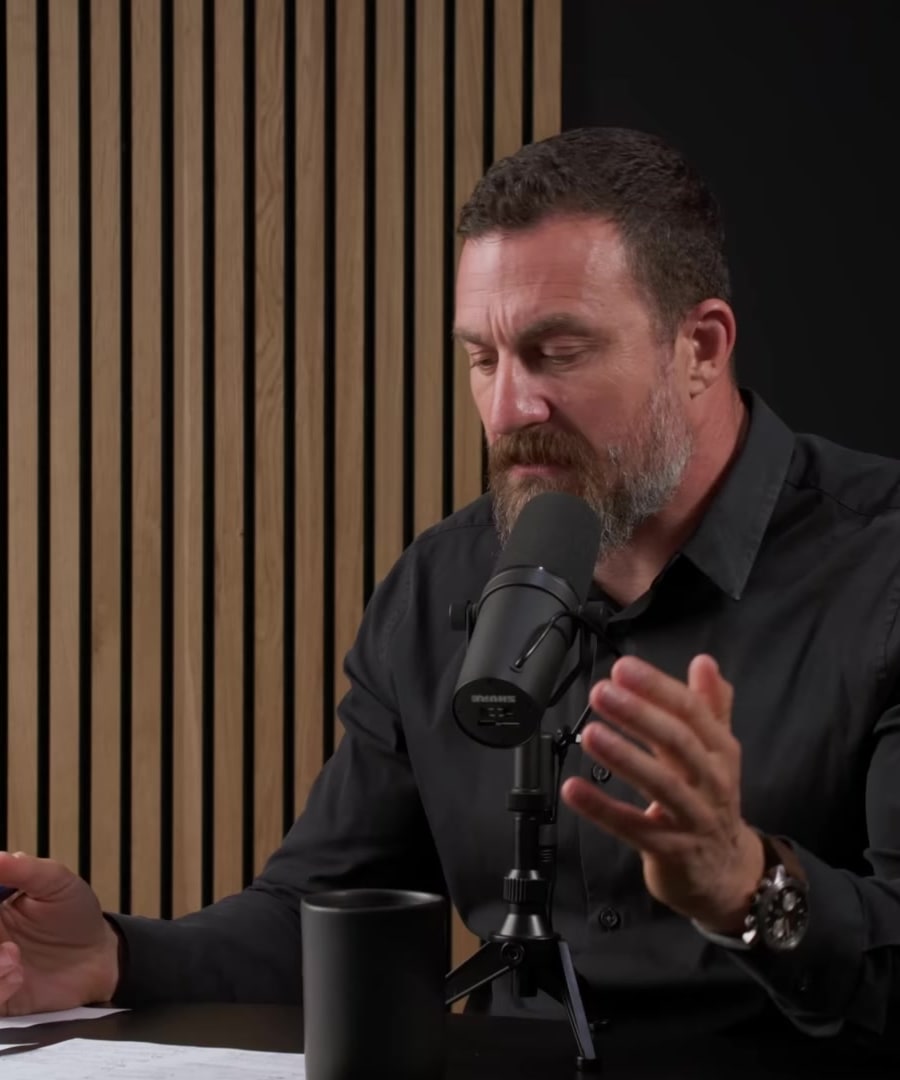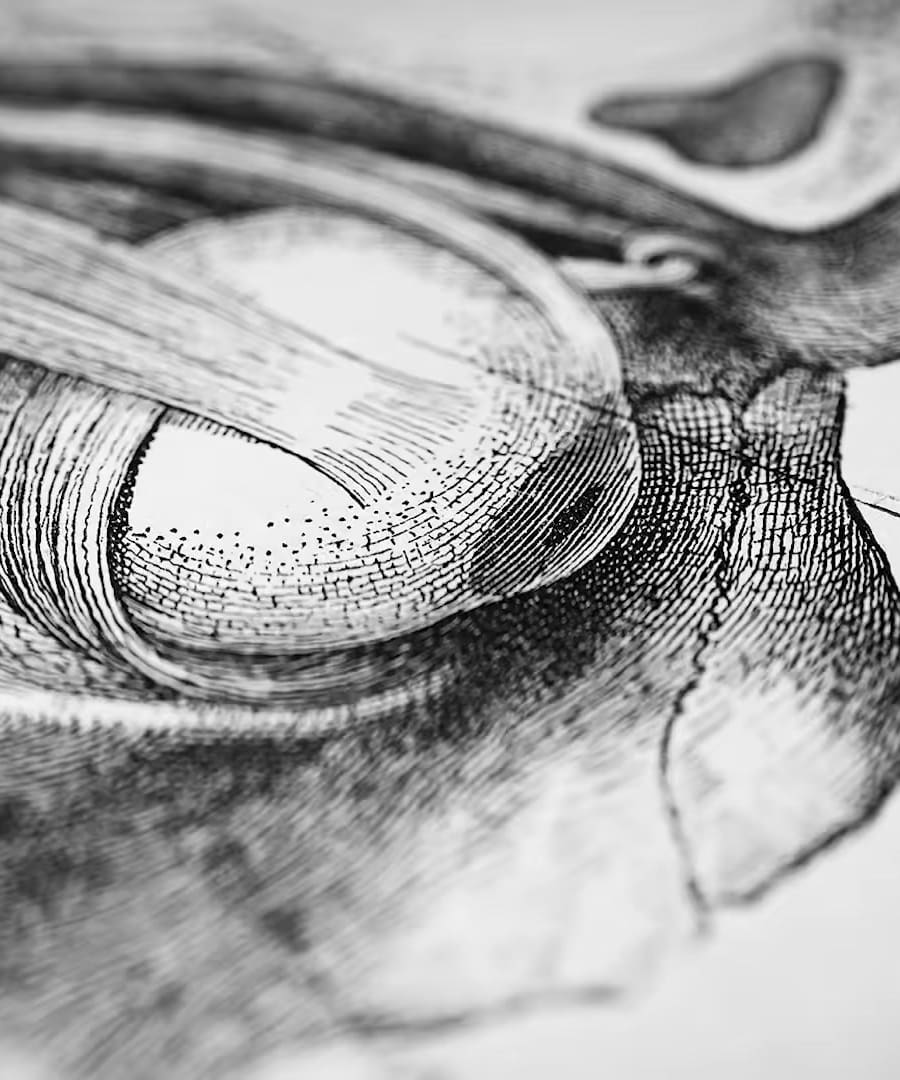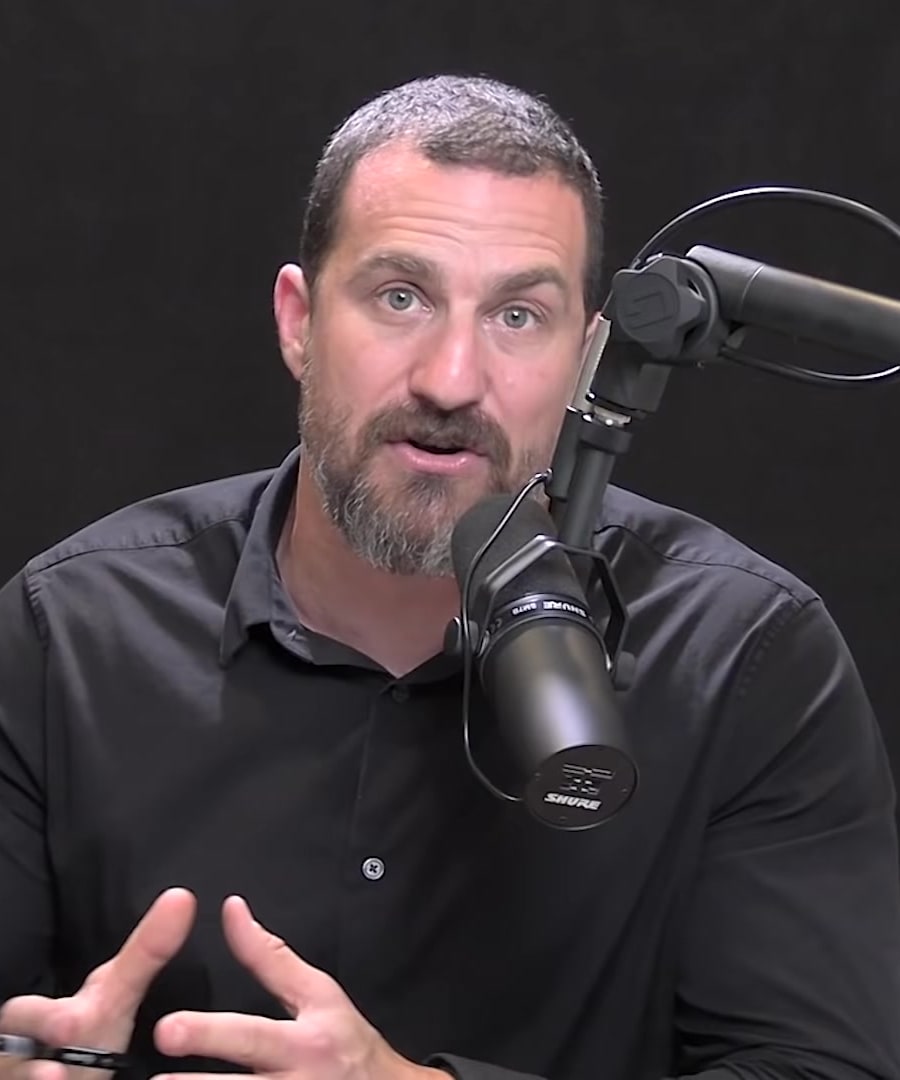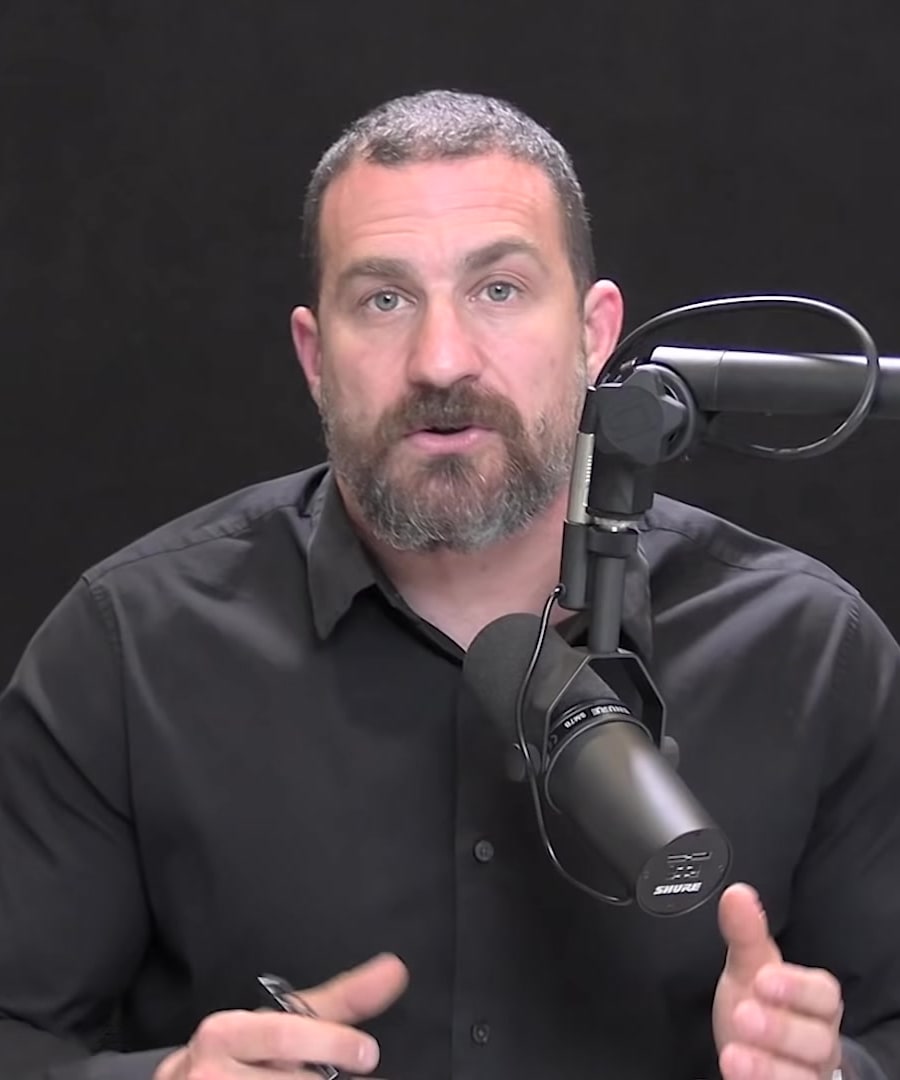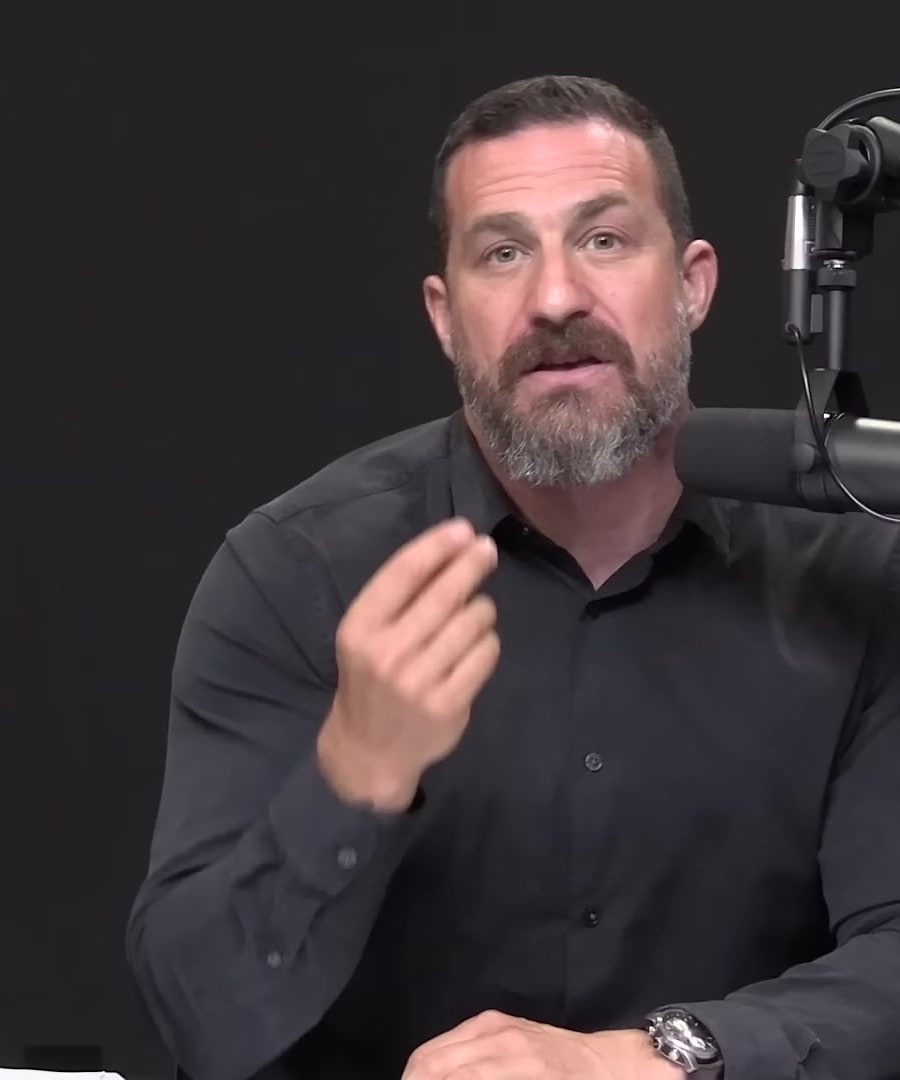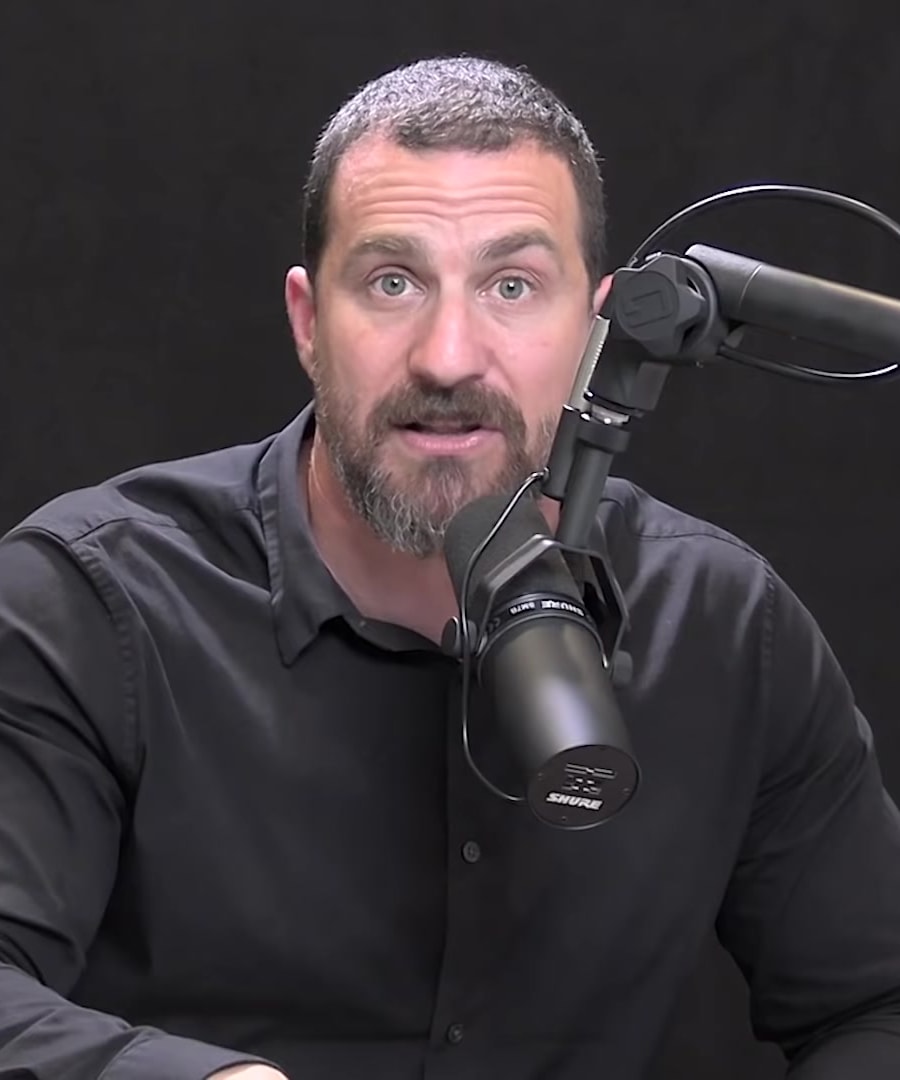How does exercise impact mental health?
Sources:
Exercise has a profound impact on mental health, according to . While it may not significantly increase the number of neurons in the human brain, exercise supports brain health through increased blood flow, which is vital because the brain is the most metabolically demanding organ. Resistance training, in addition to endurance training, is equally important due to the release of hormones from bones like osteocalcin, which positively affect brain function and support the health of existing neurons 1.
advocates incorporating a balance of strength and hypertrophy work, and endurance training into weekly routines to derive these neuroprotective benefits, as well as other positive outcomes like the production of brain-derived neurotrophic factor (BDNF), limiting inflammatory cytokines, and promoting anti-inflammatory cytokines 2.
In the context of mental health, also elucidates the importance of varied forms of inquiry, akin to the diverse exercise regimes for physical health. This approach is essential for a healthy mind, preventing harm and maintaining balance just as varying physical training prevents overuse injuries 3.
Furthermore, it's reported that after rigorous exercise, some individuals experience brain fog, which might be due to post-exercise temperature effects on the brain, as increasing temperatures are known to decrease cognitive capacity 4.
Exercise can also improve mood and cognitive function, including focused attention and reaction time, and these benefits have been observed to last for up to two hours after a workout session 5. Specific to learning and memory, cardiovascular exercise has been associated with the creation of new neurons in the dentate gyrus of the hippocampus, important for memory formation and consolidation 6.
RELATED QUESTIONSHow does exercise influence brain function specifically?
Sources:
Exercise influences brain function in several significant ways. Here are key points highlighted by :
-
Oxygenation: Intense exercise can cause a reduction in oxygenation of the brain, which impacts cognitive ability. It's important to consider the intensity and duration of exercise to balance these effects with daily cognitive demands 1.
-
Release of Hormones and Neurotransmitters: Resistance training and hypertrophy, especially when reaching the point of muscle burn and generating lactate, can have positive effects on the brain through hormonal signaling 2.
-
Blood Flow: Exercise increases blood flow to the brain, which is crucial since the brain is highly metabolically active. Resistance training is as important as endurance training for stimulating the release of hormones from bones like osteocalcin, which can positively impact brain function 3.
-
Neuroplasticity and Brain Health: Physical movement is vital for brain health and supports existing neural networks rather than increasing neuron number in humans. Balancing endurance and strength work across the week supports the production of brain-derived neurotrophic factor and limits inflammatory cytokines 3 4.
-
Hippocampal Function: Cardiovascular exercise can increase the creation of new neurons in the dentate gyrus, a subregion of the hippocampus involved in memory formation and consolidation. Exercise also indirectly influences neurogenesis through improvements in blood flow and lymphatic circulation 5.
-
Mobility and Load Bearing: The brain relies on signals from the body, one of which is the release of osteocalcin during load-bearing exercise. These signals maintain the brain-body relationship and assist the brain in knowing the status of bodily movement 6.
Additionally, has also contributed to the understanding of exercise's impact on brain function, discussing the release of neurochemicals like dopamine, serotonin, noradrenaline, and brain-derived neurotrophic factor (Bdnf) during exercise. Bdnf is particularly important as it fosters the growth of new cells in the hippocampus, directly benefiting memory function and reducing the effects of aging on the brain 7.
RELATED QUESTIONS-
How does exercise influence brain function specifically?
Sources:
Exercise influences brain function through several physiological and cognitive pathways, as explained by and guest on the podcast. Below are the key points they have articulated:
-
Oxygenation: Intense exercise can initially reduce brain oxygenation, affecting cognitive function, so it's important to balance exercise intensity and duration with cognitive demands 1.
-
Hormonal Signals: High-intensity strength and hypertrophy training, particularly when involving muscle burn, can beneficially impact the brain through the generation of lactate as a hormonal signal 2.
-
Blood Flow: Increased blood flow from exercise supports brain health, considering the brain's high metabolic demand. The brain's fuel delivery system relies on this enhanced circulation from exercise 3.
-
Release of Neurochemicals: Exercise prompts the release of neurochemicals, including dopamine, serotonin, noradrenaline, and brain-derived neurotrophic factor (Bdnf), which are beneficial for mood, attention, and growth of new neurons in the hippocampus, enhancing memory and cognitive function 4 5.
-
Neuroplasticity: Besides releasing neurochemicals, exercise can foster brain plasticity. Regular physical activity might improve the brain's capacity for plasticity and increase the efficiency and size of vascular structures for delivering nutrients and growth factors to the brain 6.
-
Osteocalcin and Movement: Load-bearing exercises induce the release of osteocalcin, a hormone from bones that supports brain function and health. This release also helps the brain to keep track of body movement, maintaining the crucial brain-body connection 7.
-
Neurogenesis: Cardiovascular exercise is associated with the proliferation of new neurons in the hippocampus' dentate gyrus, which contributes to memory formation and cognitive enhancement 8.
-
Long-Term Brain Health: Consistent exercise throughout life can preserve cognition and delay the decline associated with aging and neurodegenerative diseases like dementia and Alzheimer's 5.
RELATED QUESTIONS-
creatine for depression
Sources:
Creatine supplementation has been discussed by with regard to its effects on mood and depression. Here are the key insights based on his discussions:
-
Augmentation of SSRI Treatment: A study published in the American Journal of Psychiatry (2012) found that creatine can enhance the response to SSRIs, specifically in women with major depressive disorder. The supplementation might decrease the required dose of SSRIs or improve their effectiveness 1.
-
Enhancement of Brain Energy Systems: Creatine supplementation can increase activity in the phosphocreatine system in the forebrain. This system is associated with mood regulation and reward pathways. Increasing its activity is correlated with improvements in mood 2.
-
Connection to NMDA Receptors: Creatine may affect NMDA receptors, which are critical for neuroplasticity and involved in changing brain circuitry. The alterations influenced by these receptors could underlie the transition from negative to positive mood 1.
-
Potential for Mood Improvement and Depression Treatment: Studies have shown that creatine supplementation can be beneficial for mood elevation and has been correlated with the treatment of major depression. Dosages in studies varied but were generally reasonable, between 3 to 10 grams per day 3.
provides a comprehensive view that suggests creatine has notable effects on mood regulation and its supplementation might be a viable support in conjunction with other treatments for depression. It's important to note that he advises consulting with a healthcare provider before supplementing with creatine 3.
RELATED QUESTIONS-
Show me detailed studies on creatine for depression
Sources:
has discussed the use of creatine for the treatment of depression, referencing scientific studies that provide insight into its efficacy and potential mechanisms. Some key points from the research include:
-
American Journal of Psychiatry (2012) Study: A randomized, double-blind, placebo-controlled trial found that creatine could enhance the response to SSRI treatment in women with major depressive disorder. The study indicated creatine may either reduce the necessary dose of SSRIs or improve the effectiveness of the current dose 1.
-
Phosphocreatine System and Brain Function: Creatine supplementation increases activity in the forebrain's phosphocreatine system, which is involved in mood regulation and the reward pathways. Additionally, changes in how NMDA receptors function, related to the phosphocreatine system in the forebrain, may contribute to shifts from negative to positive mood 2.
-
Dosages and Effects: The studies looked at dosages ranging from three to ten grams per day and were correlated with increased mood and improvements in the symptoms of major depression 3.
For further reading, mentioned a comprehensive review on creatine for the treatment of major depression that includes detailed information about the subjects, dosages, and findings. Unfortunately, the review itself isn't directly provided in the data, but it was discussed as a comprehensive source of information 1.
Additionally, creatine's role in improving neuronal and brain function, elaborated in a review by Roschel et al., was published in 2021. This literature illuminates creatine's cognitive benefits, including the potential to enhance the function of frontal cortical circuits involved in mood regulation and motivation—particularly significant for those not consuming meat or other creatine-rich foods 4.
Creatine is also exalted for its broad physiological benefits beyond muscle recovery; it has been shown to aid in cognitive function, decision-making, and memory 5. Furthermore, ongoing research is exploring creatine's potential in clinical settings—including its impact on neurological disorders and depression 6.
These insights provide a detailed understanding of creatine's potential role in depression treatment based on the studies and reviews discussed by . Always consult with a healthcare provider before starting any new treatment, including creatine supplementation.
RELATED QUESTIONS-
ADHD
Sources:
has discussed ADHD extensively on the podcast. Here are key insights from various episodes regarding ADHD:
-
Role of Dopamine and ADHD: Dopamine plays a critical role in motivation, desire, and drive, and is deeply connected to attention and focus issues associated with ADHD. discusses the importance of dopamine in individuals with ADHD, highlighting their ability to focus on topics of interest, although they may struggle with general focus 1.
-
Genetics and ADHD: ADHD has a strong genetic component, and one's likelihood of having ADHD increases if a close relative has the condition due to the specific neural circuits and how they are wired in the brain 2.
-
Improving Focus: Strategies for improving focus are applicable whether or not one has ADHD. discusses various tools, including drug-based tools, behavioral strategies, diet, supplementation, and brain-machine interface devices aimed at enhancing focus and relaxation during the learning process 3.
-
Risks with ADHD Medication: emphasizes the importance of appropriate drug dosages for ADHD treatment. He warns that increasing dopamine too much can lead to euphoria, manic behaviors, or psychosis, while excessive norepinephrine can cause anxiety or panic attacks. These insights underline the complexity of ADHD treatment and the necessity of proper medical guidance 4.
-
Working Memory and ADHD: Individuals with ADHD may experience difficulties with working memory—keeping specific information readily available for immediate use. This aspect of memory is often disrupted in ADHD, different from the ability to remember past or upcoming events 5.
-
Treating Childhood ADHD: Accurate diagnosis and treatment are crucial. discusses that early treatment with prescription drugs can lead to normalization of the circuits, increasing dopamine transmission in the forebrain. It is essential to use a combination of pharmacologic treatments, behavioral prescriptions, nutritional guidelines, and supplementation 6.
-
Sugar Intake and ADHD: High consumption of refined sugar, specifically going beyond four sugary drinks per week, correlates with worsening of ADHD symptoms. Furthermore, omega-3 fatty acid supplementation may help ameliorate symptoms of ADHD, potentially by affecting the same neuropod to dopamine pathways activated by sugar 7.
-
ADHD Medication Overview: A wide range of ADHD drugs exists, more than for any other psychiatric condition. Variations in the ability to focus on different activities, as well as individual sensitivity to drugs, underscore the complexity of the condition. Choosing the right drug and dosage is a highly individualized process, requiring a qualified psychiatrist's consult 8.
For a more detailed understanding of ADHD, as well as insights into strategies for improving focus and living with ADHD, you can listen to full episodes and specific sections addressing ADHD on the podcast. Each clip cited offers a unique perspective on the varied aspects of ADHD diagnosis, treatment, and management.
RELATED QUESTIONS-
Explore strategies for improving focus with ADHD
Sources:
To improve focus, especially for those with ADHD, provides various strategies in the podcast. Here are some of the key insights and recommendations:
-
Behavioral Tools: Incorporating behavioral strategies can be effective in enhancing focus. These tools should be the starting point before considering medication or supplementation 1.
-
Dietary Considerations: Consuming foods low in simple sugars and processed meals while including foods rich in tyrosine, a precursor to dopamine, helps enhance concentration and focus. However, overeating or consuming large meals can reduce your ability to concentrate 2.
-
Prescription Medicine: Properly prescribed medicines at the appropriate dosage, such as Adderall, Ritalin, or Vyvanse, have been shown to contribute positively to teaching neural circuits how to engage and focus in individuals with clinically diagnosed ADHD 3.
-
Supplementation: Over-the-counter compounds like L-Tyrosine are explored for use in treating ADHD and improving focus. It's crucial to approach these supplements with caution due to the wide-ranging dosage recommendations and potential mood disorder interactions 4.
-
Smartphone Impact: The increased use of smartphones has been noted to hinder the ability to focus and potentially induce ADHD-like symptoms in adults 5.
-
Brain-Machine Interface Devices: Tools like transcranial magnetic stimulation are emerging non-invasive methods for rewiring the brain to enhance natural focus and teach individuals how to deepen their focus 5.
-
Drug-based Tools: In addition to behavioral strategies, drug-based interventions are discussed, but with a reminder about the careful, proper use and the value of professional medical advice 5.
-
Learning to Relax While Focusing: Understanding how to relax during the focusing process is essential for learning and fostering creative ideas 5.
-
Enhancing Focus: A 17-minute session using a specific tool was mentioned to enhance the ability to focus thereafter, presumably forever, though details on the tool itself weren't provided within the cited clip 6.
By integrating these strategies, individuals with ADHD, as well as those looking to improve focus in general, can work toward better cognitive performance. Behavioral and dietary changes seem to be the foundation, with a potential role for supplements and, if necessary, prescription medication. Consulting with healthcare professionals is always recommended when considering prescription drugs or altering one's diet and supplement regimen.
RELATED QUESTIONS-
What are some ADHD-friendly dietary tips?
Sources:
outlines several ADHD-friendly dietary tips in the that can improve focus and help manage symptoms:
-
Limit Simple Sugars: Eliminating simple sugars from the diet has a dramatic and positive effect on children with ADHD. Reducing sugar intake can enhance the ability to focus, decrease impulsivity, and improve overall management of ADHD symptoms 1.
-
Oligoantigenic Diet: Investigating a so-called oligoantigenic diet, which involves eliminating foods that one is mildly allergic to, can impact symptoms of ADHD by reducing foods that exacerbate symptoms. The exact dietary needs may change over time 1.
-
Mindful Sugar Intake: Consuming highly refined sugars is generally not good for people with ADHD. While glucose is important for neuron tuning, excessive sugar, especially from sugary drinks, can have negative outcomes for individuals with ADHD 2.
-
Omega-3 Fatty Acid Supplementation: Omega-3 fatty acids can play a role in modulating symptoms of ADHD. Supplementation with these fatty acids, particularly EPA, can be beneficial 3.
It should be noted that while these dietary tips can be helpful, they are not a cure-all. The importance of having a balanced approach that considers individual dietary needs and possible food allergies is highlighted. Moreover, any dietary changes or supplementation should be done in consultation with healthcare professionals, especially for children with ADHD.
RELATED QUESTIONS-
Please provide more tips on managing ADHD.
Sources:
Here are additional tips for managing ADHD, in line with the knowledge shared by :
-
Accurate Diagnosis: The first step in managing ADHD for children is getting an accurate diagnosis from a well-qualified psychiatrist, who takes into account the child's unique needs. Proper diagnosis ensures appropriate medication and behavioral prescriptions can be combined for treatment 1.
-
Prescription Drugs and Behavioral Treatments: Prescription drugs such as stimulants, used in combination with behavioral treatments, help improve focus and may normalize brain networks involved in attention through neuroplasticity 2. It's important to determine the appropriate pharmacology on an individual basis and consider the potential side effects 3.
-
Non-Prescription Approaches: There are promising non-prescription supplements that can potentially affect dopamine, acetylcholine, and serotonin levels in the brain, showing good efficacy in peer-reviewed studies 3.
-
Physical Activity: Physical engagement, like using fidget toys or performing small repetitive movements, can help some individuals with ADHD to better focus mentally. This provides an outlet for physical energy, which can also benefit adults in contexts like public speaking 4.
-
Omega-3 Fatty Acid Supplementation: Omega-3 fatty acids, particularly EPA, have been shown to potentially ameliorate some symptoms of ADHD and may support mood and cardiovascular health. These should be considered in addition to the individual's diet and under the care of a physician 5.
-
Understanding Drug Action: Understanding the actions of classic and new ADHD medications, as well as their similarity to certain recreational drugs, helps in making informed decisions about the treatment of attentional deficits. Discussions about the use of such medications should be approached carefully with a qualified psychiatrist 3.
-
Wise Medication Practices: Educate oneself about the specificity and proper usage of medications meant for ADHD like Modafinil and Armodafinil and debunk myths around brand name versus generic drugs. Costs and preferences may play a role in medication selection 6.
-
Technology Aids: Look into brain-machine interface devices, like transcranial magnetic stimulation, for non-invasive methods of enhancing focus and training the brain to concentrate better 7.
Managing ADHD effectively requires a well-rounded approach that includes medication and behavioral strategies, alongside considerations of diet and lifestyle changes. It's essential to consult with healthcare professionals before implementing any treatments or supplements.
RELATED QUESTIONS-
OTC supplements for ADHD
Sources:
has discussed various over-the-counter (OTC) supplements in the context of ADHD treatment and cognitive focus. Here are some supplements mentioned:
-
L-Tyrosine: This amino acid acts as a precursor to dopamine. It can improve the ability to focus, but dosing can be tricky, and it should be approached with caution, particularly for those with underlying psychiatric or mood disorders 1.
-
Acetyl L-Carnitine: A study found that acetyl L-carnitine supplementation improved symptoms of ADHD in children. Dosages in the study were based on body weight, with a maximum of 4 grams per day 2.
-
Mucuna Pruriens: Also known as velvet bean, this supplement contains L-Dopa, a direct precursor to dopamine. It is often used to increase dopamine levels, similar to how L-Dopa is used to treat Parkinson's 3.
-
Phenethylamine (PEA): It is explored for its potential dopaminergic effects, which could affect attention and impulsivity, although its use should also be approached with caution 1.
For people seeking non-prescription ways to manage ADHD symptoms or boost cognitive function, these OTC supplements might be considered. However, it is crucial to consult with a healthcare professional due to the varying dosages and potential side effects, particularly given that dysregulation of the dopamine system can be central to mood disorders and ADHD itself.
RELATED QUESTIONS-
PMS treatment
It appears there's no specific data on PMS treatment discussed in the data that I retrieved. However, treatments for PMS often involve a combination of lifestyle changes, symptom management, and sometimes medication. It's generally recommended to consult a healthcare provider for personalized advice on managing PMS. If there were insights from on this topic, it would typically involve a thorough explanation of the underlying biology and evidence-based interventions, pulling from both scientific research and anecdotal examples.
RELATED QUESTIONSProvide lifestyle tips for managing PMS
Currently, there is no specific data from the regarding lifestyle tips for managing premenstrual syndrome (PMS). It's important to consult a healthcare provider for personalized strategies to manage PMS symptoms, which can include diet, exercise, sleep, and stress management techniques. If such information becomes available in the future from , it would be based on rigorous scientific evidence and clearly explain the physiological mechanisms involved.
RELATED QUESTIONSashwaganda and phosphasdytesterine benefits to anxiety and stress
Sources:
Ashwagandha has been noted by to have powerful anti-anxiety effects and the ability to significantly reduce cortisol levels in stressed but otherwise healthy individuals, by 14.5 to 27.9%. It has been used to enhance power output in athletes, modestly increase testosterone, and adjust low-density lipoprotein cholesterol, as well as lower depression to a degree 1. However, the timing for taking ashwagandha is important, as cortisol is beneficial in the morning for energy. Therefore, it is suggested to take it later in the day or evening 2.
Phosphatidylserine has also been discussed between and other experts in the context of lowering cortisol. It is seen as effective when taken in doses of 400-800 milligrams, with 400 milligrams often being more effective than 800 milligrams 3. The timing of taking phosphatidylserine depends on when the individual's cortisol levels are high, which could be in the morning or evening 3.
Both supplements should be cycled and not used continuously long-term without medical supervision. It is also crucial to consult with a healthcare professional before starting any supplement regimen to ensure safety and personal suitability 4.
RELATED QUESTIONSAre there other supplements similar to ashwagandha and phosphatidylserine that help with anxiety and stress?
Sources:
Other supplements that have been discussed on the for their potential benefits in reducing anxiety and stress, similar to ashwagandha and phosphatidylserine, include:
- Saffron: It has been highlighted for its anxiety-reducing effects at doses of around 30 milligrams based on multiple studies, including double-blind ones 1.
- Inositol: Noted for creating a notable decrease in anxiety symptoms with effects comparable to some prescription antidepressants, although at high doses 1.
- L-Theanine: This amino acid is often used to help take the edge off stress and is beneficial in certain cases, although not discussed in detail 2.
also mentioned the practice of yoga nidra, which involves deep relaxation techniques that can be particularly effective in reducing stress and improving sleep 3.
It's important to remember that before taking any supplement, you should consult with a healthcare professional to make sure these substances are appropriate and safe for you to use, as individual responses to supplements can vary. Additionally, while these substances can be helpful, they should often be used in combination with other stress management practices including lifestyle adjustments, consistent sleep, and perhaps professional therapy if needed 4.
RELATED QUESTIONSWhat are more supplements for stress?
Sources:
Additional supplements for managing stress, as discussed on the include:
- Saffron: Reported to reduce anxiety with 12 studies supporting this effect at a dose of around 30 milligrams 1.
- Apigenin: Found in chamomile, it has anti-estrogen and anxiolytic effects, helping to calm the nervous system and mildly reducing cortisol when taken in doses like 50 milligrams before bedtime 2.
- Phosphatidylserine (PS): Mentioned for its potential to help blunt cortisol release, particularly useful before sleep to manage stress 3.
- L-Theanine: Known to enhance the transition to sleep and reduce chronic anxiety or stress. It works by increasing GABA and can be taken at doses of 100 to 200 milligrams before sleep or in the late afternoon to manage stress 4.
Please note that these supplements should be considered with regard to personal health conditions and in consultation with a healthcare provider to ensure they are appropriate for your situation. And remember that stress management also includes behavioral tools, such as yoga nidra, and other lifestyle adjustments for a comprehensive approach 3.
RELATED QUESTIONSLavender capsules
It appears there is no specific mention of lavender capsules for managing stress in the data that I have access to. Lavender has a reputation for its calming properties, often used in essential oil form for aroma-therapeutic benefits. However, without data from the podcast, I cannot provide further details or recommendations based on perspective on the use of lavender capsules. If considering any supplement for stress, it is important to consult with a healthcare provider before starting.
RELATED QUESTIONSGlycine for stress/anxiety
Sources:
has not specifically discussed glycine for stress or anxiety in the available data. However, he did mention the benefits of L-theanine, which is another amino acid that can help with anxiety and stress by increasing GABA, an inhibitory neurotransmitter in the brain. L-theanine has been shown to enhance relaxation, reduce task completion anxiety, and notably reduce the effects of stress in various studies 1.
While not directly about glycine, the mechanisms of action of L-theanine may provide some insights into how amino acids, in general, can influence stress and anxiety. Always consult with a healthcare professional before beginning any new supplement regimen.
RELATED QUESTIONS
How does exercise impact mental health?
- RELATED QUESTIONS
How does exercise influence brain function specifically?
- RELATED QUESTIONS
How does exercise influence brain function specifically?
- RELATED QUESTIONS
creatine for depression
- RELATED QUESTIONS
Show me detailed studies on creatine for depression
- RELATED QUESTIONS
ADHD
- RELATED QUESTIONS
Explore strategies for improving focus with ADHD
- RELATED QUESTIONS
What are some ADHD-friendly dietary tips?
- RELATED QUESTIONS
Please provide more tips on managing ADHD.
- RELATED QUESTIONS
OTC supplements for ADHD
- RELATED QUESTIONS
PMS treatment
- RELATED QUESTIONS
Provide lifestyle tips for managing PMS
- RELATED QUESTIONS
ashwaganda and phosphasdytesterine benefits to anxiety and stress
- RELATED QUESTIONS
Are there other supplements similar to ashwagandha and phosphatidylserine that help with anxiety and stress?
- RELATED QUESTIONS
What are more supplements for stress?
- RELATED QUESTIONS
Lavender capsules
- RELATED QUESTIONS
Glycine for stress/anxiety
- RELATED QUESTIONS


